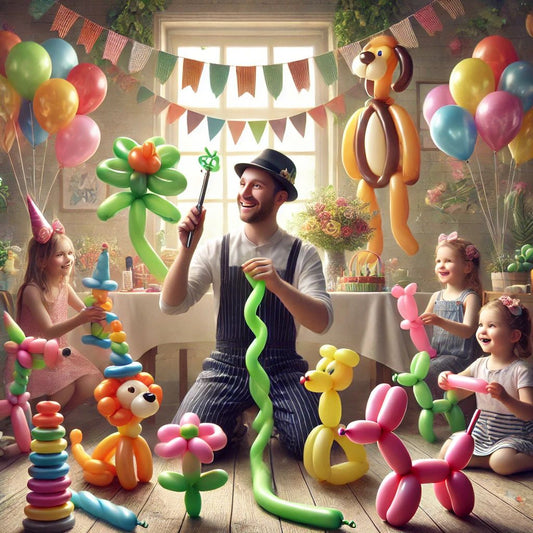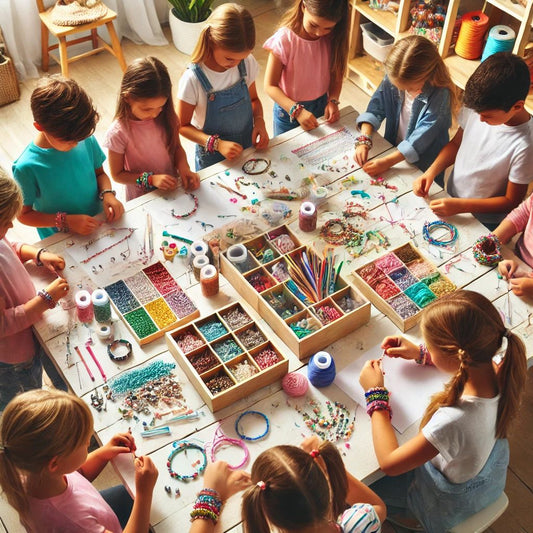
Congratulations in Germany
Share
Congratulations in Germany: Main Rules, Culture, Traditions, Etiquette and Customs
Learning Congratulations in Germany: Avoiding Awkwardness
1.1 A brief overview of the culture of congratulations in Germany
In Germany, it is customary to pay special attention to congratulations and various holiday rituals. This is largely due to the fact that Germans value clarity, accuracy and consistency in communication. It so happened historically that their customs and behavior have absorbed the idea of respect for personal space and other people's time.
Punctuality is considered one of the features of the German mentality: be it a business meeting, a friendly visit or a ceremonial event. When it comes to congratulations , punctuality and precision also play a role: it is believed that gifts and kind words should be given on time, be it a birthday, New Year or another event. This is not only a tribute to tradition, but also a way to show that you value the person and pay attention to him.
Festive customs and greeting formats (from handwritten cards to digital messages) may differ by region. For example, in southern Catholic Germany, religious holidays play an important role, while in northern Protestant regions, civil traditions are more important. But in any case, the common denominator remains the same: sincere words and the right timing for congratulations.
1.2 Why it is important to understand local traditions and customs
For a foreigner living or traveling in Germany, understanding local traditions can be a decisive factor for successful integration. Mutual respect and the ability to take into account the cultural context of the interlocutor are highly valued in German society. If you want to congratulate a friend, colleague or acquaintance, it is extremely important to consider what holidays are important to them and how they are celebrated in the family or team.
If you don't know the finer points of etiquette, you can easily get into an awkward situation. For example, in Russian-speaking countries, people often congratulate someone on their birthday in advance, while in Germany this is considered a bad omen - it is better to wait until the official date. Another "trap" may be choosing an inappropriate gift or formulating wishes inappropriately. Such nuances may not be noticeable at first glance, but for Germans they are often of fundamental importance.
It is also important to understand that in Germany much is based on the principle of voluntary self-control and adherence to unspoken norms of behavior. This directly concerns congratulations: no one will openly reproach you for "incorrect" treatment, but many will form a certain opinion about you and your level of cultural adaptation.
1.3. Main differences from Russian-speaking countries
One of the noticeable differences is the clear line between formal and informal greetings. In Russian culture, people often use warm and emotional expressions even in formal settings, while in Germany there are strict rules about when to address someone as “Sie” and when “du” is appropriate. Similarly, with vocabulary: formal greetings can sound more reserved, while between close friends not only a more relaxed tone is acceptable, but also humorous or ironic phrases.
The second difference concerns the tone and volume of wishes. Germans, as a rule, prefer brevity and specificity. In Germany, it is not customary to pronounce very long wishes loaded with emotional details: the simpler and clearer the wording, the better. At the same time, sincerity and clarity of words are valued higher than pompous rhetoric. In Russian-speaking countries, on the contrary, a long beautiful congratulation in Germany can be considered a sign of special attention and respect for the birthday boy or girl.
In general, learning about local traditions and customs not only helps you fit in well in the German environment, but also enriches your own understanding of the diversity of cultural practices. By paying attention to nuances, you not only avoid potential misunderstandings, but also demonstrate a genuine interest in the country and the people with whom fate brings you together.
2. Traditional holidays and occasions for congratulations
2.1. Christmas (Weihnachten)
Christmas in Germany (Weihnachten) is considered one of the most important and revered holidays of the year. Germans pay special attention to family values, symbolism and a cozy festive atmosphere that reigns everywhere from the end of November and almost all of December.
How to celebrate, what to expect from guests
In Germany, Christmas (December 24–26) is usually spent in a close family circle. The key evening is December 24 (Heiligabend), when family members gather around the festive table, exchange gifts and enjoy each other. Given this tradition, if you are invited to a Christmas dinner, it is best to check in advance whether the hosts are planning an evening exclusively for close friends. If invited by German family or friends, you are expected to arrive on time, if possible dressed up but not overly formal, and to bring a symbolic gift (such as a box of chocolates or a bottle of good wine).
Also keep in mind that Christmas in Germany is a time of quiet, coziness and togetherness. Germans like to create an atmosphere of "Gemütlichkeit" (coziness, comfort, calm), and guests usually support this intimacy by avoiding too much noise.
German Christmas Markets (Weihnachtsmärkte), Decorations, Festive Food
Christmas markets (Weihnachtsmärkte), which start at the end of November or the beginning of December, are a real calling card of the German Christmas season. They appear in almost every city and even in small villages. There you can buy original handmade gifts, enjoy traditional delicacies (gingerbread, roasted almonds, strudel) and, of course, warm up with a mug of hot mulled wine (Glühwein).
Festive decorations appear in homes and on the streets: garlands, candles, Advent wreaths (Adventskranz) and stars made of paper or other materials. The central detail of the room is usually the Christmas tree. Many families like to choose the tree together and then spend time decorating it with baubles, garlands and figurines, which are sometimes passed down from generation to generation.
Traditional holiday food varies from region to region: some serve roast goose with dumplings, others carp, while some families limit themselves to simple dishes in favor of long evening conversations over sweets and hot drinks.
Gifts and greeting cards
The exchange of gifts (Bescherung) usually takes place on the evening of December 24. In large families, it is customary to give presents in turns, so that everyone can pay attention to the reaction of the other. The gifts are mostly symbolic: something small but thoughtful.
Greeting cards remain an important attribute of Christmas. They start to be sent to friends and relatives as early as the beginning of December. Even in the digital age, handwritten messages or at least beautifully designed printed cards are popular and are considered a sign of special respect.
The Role of Advent Calendars
The Advent calendar (Adventskalender) is one of the most beloved traditions, especially among children. This calendar usually has 24 windows, each of which hides a chocolate bar, a candy, a note with a wish or a small toy. Each day of Advent (the period of waiting for Christmas), the child opens another window, approaching the holiday.
Adults also love these calendars: in stores in Germany you can find options with tea, cosmetics, spices and even original design solutions. The idea of an advent calendar is to create an atmosphere of joyful anticipation and make December even more special.
What text is usually written in postcards
The texts in Christmas cards are usually short, warm and sincere. Usually they wish "Frohe Weihnachten!" or "Fröhliche Weihnachten und einen guten Rutsch ins neue Jahr!". It is important to mention wishes for health (Gesundheit), happiness (Glück), family warmth (Familienglück) and success in the new year. If the card is sent to loved ones, a few personal lines are often added: thanks for the past year, hope for a quick meeting, etc. In more formal situations (for example, to colleagues or business partners), neutral greetings are chosen, avoiding overly personal details.
2.1.1. Historical background
Christmas in Germany has deep roots dating back to the Middle Ages, when Christianity was firmly established in the German lands.
- The Origins of Christmas Celebrations in Germany: The Influence of Christian Traditions Since the Middle Ages
- Medieval Germany absorbed many regional customs, many of which were directly related to the Christian church and the heritage of ancient Germanic tribes. Over time, these customs developed into a Christian holiday that reflected both religious content (the birth of Jesus Christ) and cultural traditions (family feasts and bright wishes).
- The development of the Christmas tree tradition and its spread across Europe
- The Christmas tree has German origins: it is believed that the first decorated coniferous trees appeared in Germany in the 16th century. Over time, the habit of decorating the tree with Christmas candles, nuts and sweets spread throughout Europe. Already in the 19th century, the Christmas tree became one of the main symbols of the winter holidays not only in Germany, but also beyond its borders.
- The history of Advent wreaths (Adventskranz) and their role in anticipation of the holiday
- The Advent wreath (Adventskranz) in its modern form appeared in Germany in the 19th century. Initially, a wreath of fir branches and four candles served as a symbol of the anticipation of Christmas: each Sunday of Advent, one new candle was lit, thus approaching the birthday of Christ. Gradually, the tradition spread throughout the country and became an integral part of Christmas decor in both homes and churches.
3.3. The importance of punctuality and personal presence
Is it customary to give advance notice of a visit?
In Germany, personal space and time are highly valued. This means that sudden visits without prior arrangement may cause confusion or even a negative reaction from the hosts. If you are going to congratulate a friend or colleague in person, it is better to agree on the time of the visit in advance so as not to catch the person off guard. This is especially true in situations where you plan to come with gifts or treats and want to devote a little more time to congratulating than in a fleeting meeting on the street.
You can notify about a visit in different ways - call, write a message in a messenger or send an email. It is important to do this in advance (at least a few days or a week) so that the person has time to fit your visit into their daily schedule. This practice shows your respect for their personal time and possible plans.
German precision and respect for personal time
Precision and strict adherence to agreements are an integral part of the German way of life. It is often said that “Germans are never late,” and although this is a certain generalization, it is indeed a common cultural practice to arrive on time or even slightly early. Punctuality in this context is considered politeness and evidence of a serious attitude towards the event itself and its participants.
Respect for the other person’s time also means communicating possible delays or cancellations as early as possible. If you realize that you will not be able to meet your schedule, be sure to let those who are expecting you know. Germans are generally understanding of unforeseen circumstances, but appreciate timely warnings that allow them to adapt their plans.
The best time to give gifts and make wishes
In Germany, it is customary not only to arrive on time, but also to choose the right moment to present a gift and say congratulatory words. This largely depends on the occasion and format of the event:
Birthday: If it is a house party, gifts are usually given at the beginning of the party or when the host has gathered all the guests in one room. Congratulations and warm words are usually said immediately upon presentation of the gift.
Formal celebration: At corporate events or at a formal reception, congratulations may be more regulated and take place after the official part.
Christmas or other family holidays : When you come home to your family, it is customary to give gifts not right away, but after you all sit down at the table, or at a pre-arranged time (for example, on the evening of December 24th on Christmas).
The main thing is not to delay the moment of presenting gifts until the very end, when someone is already leaving, and not to do it too early, when the hosts are not yet ready to accept congratulations.
How to Avoid Arriving Too Early and Staying Too Late
Maintaining a balance between arriving too early and too late is a real art. The rule of thumb is usually "plus or minus five to ten minutes." Arriving long before the agreed time (for example, half an hour or an hour earlier) is not advisable, as the hosts may not have had time to prepare everything yet.
On the other hand, being more than 15 minutes late is also undesirable - it can upset the host's plans or create an awkward pause at the very beginning of the party. If a delay is inevitable, it is always worth contacting the hosts immediately and warning them.
As for the moment of departure, it is also important to catch the mood of the event. If you feel that the hosts are already tired or it is time for them to do other things, it is better to say goodbye tactfully. This rule is universal for all guests and is designed to maintain a harmonious atmosphere of the holiday and avoid awkward situations.
3.3.1. Historical background
The Roots of German Punctuality in the Industrial Revolution
The phenomenon of German punctuality largely originated in the 19th century, during the Industrial Revolution. Before factories, plants, and mass production, most people were engaged in agriculture, where the timing and pace of work were dictated by nature. With the advent of the industrial era, life began to be subject to a stricter routine and a clear schedule.
Factory whistles signaled the beginning and end of work shifts, and urban life required a coordinated schedule for many processes. The advent of precise mechanical clocks and the rapid development of industrial production formed the habit in German society of valuing time as a valuable resource, important not only for the personal but also for the common good.
How Railways and Factory Routines Influenced Time-Keeping Culture
With the invention and spread of railways in the middle and second half of the 19th century, the Germans had another strong argument in favor of punctuality. Trains ran on schedule, and any delay could cause a breakdown in the operation of an entire junction or branch. It became clear that the successful organization of railway communication largely depended on discipline and the ability to follow the schedule.
This principle of an “all-encompassing” schedule carried over to other areas of life, from banks and shops to educational institutions and restaurants. Over time, this approach became a cultural norm, requiring keeping agreements, respecting other people’s time, and planning in advance for any event, including personal meetings, holidays, and visits.
4. Congratulations formats
4.1. Verbal congratulations
Verbal congratulations are one of the most traditional and warm ways to express your attitude to loved ones and colleagues. In Germany, as in other countries, there are certain rules and customs associated with the delivery of ceremonial and friendly speeches, which helps make each congratulation concise, appropriate and pleasant for the recipient.
Congratulatory toasts: what to say and how to say it
- Brevity and concreteness
- Germans value clarity and specificity. That's why long, flowery speeches overloaded with emotion are not as popular here as in some other cultures. It's better to highlight the main thing: the reason for which you are making a toast and sincere wishes. For example, if you are congratulating a birthday boy, briefly mention his virtues and express the hope that he will have many successes and happy moments ahead.
- Humor and personal appeal
- Despite the general tendency towards brevity, appropriate humor in toasts and congratulations is quite welcome, especially among friends or well-known colleagues. The main thing is to avoid offensive jokes and ambiguous hints. Personally addressing the hero of the occasion (by name, mentioning his personal qualities or funny stories) will create a cozy atmosphere and show that you have prepared in advance.
- Place and appropriate tone (friendly, formal)
- Friendly parties: You can allow yourself a more relaxed style, warm humor, sometimes even light irony.
- Formal receptions: It is worth sticking to a more strict and formal language, avoiding familiar forms and colloquial expressions.
- The role of intonation and non-verbal communication
- When giving a toast, it is important to be confident, speak clearly, and look into the eyes of those you are addressing. A slight smile and an open posture will emphasize friendliness and cordiality. Speak loudly enough to be heard, but do not shout - even in a lively company.
Practical advice
- Raise your glass after you finish speaking. In Germany, the most common greeting is "Prost!" or "Zum Wohl!", accompanied by a light touch of the glasses (it is better to look into the eyes of the interlocutor - it is considered a sign of respect).
- Don't let the pause between the end of your speech and the general friendly response.
- If you have several toasts in reserve, distribute them evenly: do not say too many in a row - give other guests a chance to speak.
4.1.1. Historical background
Old German feasts (16th–17th centuries) and the tradition of “drinking to health”
The tradition of raising a glass and making toasts goes back to the distant past. Already in the Middle Ages, it was customary in German cities and principalities to “drink to health” (in the original, “Trinkspruch” - “table speech”). In the 16th-17th centuries, table rituals were actively practiced both in aristocratic circles and among townspeople. Often, such events were ritual in nature - for example, after the conclusion of important deals or in honor of festivities at city fairs.
In noble circles, toasts were especially solemn and verbose: they were often accompanied by speeches about valor, loyalty or patriotism. It was believed that a joint “drinking to health” strengthened the union and demonstrated respect for the host of the event or for the honored guests.
The Habit of Proposing Toasts: From Noble Houses to City Beer Halls
Gradually, the culture of toasts began to spread among the urban population. In beer halls (especially in Southern Germany), a tradition of short but cheerful exclamations addressed to all those present arose. In this way, people expressed goodwill and a desire to spend time together. This is how the familiar “Prost!” (“To health!”) and “Zum Wohl!” (“For the good!”) appeared.
- Beer halls in Bavaria: Until the 19th century, there was a special etiquette for drinking here, when large groups would gather at long tables, drink locally brewed beer and make short, humorous toasts to maintain “team spirit.”
- City wine cellars: In wine-growing regions (Rhineland, Franconia, Baden-Württemberg), toasts were made praising the beauty of the local vineyards and the taste of the wine.
Over time, table culture penetrated into narrower family celebrations: birthdays, christenings, weddings. Each significant holiday acquired its own customs, and toasts became an integral part of congratulations.
Thus, Germans, on the one hand, prefer brevity and respect for the format of the event, and on the other, they are happy to support the habit of proclaiming toasts inherited from their ancestors. Understanding the historical context and modern rules of etiquette will allow you to harmoniously fit into any table situation, be it a friendly meeting or an official banquet.
5. Special traditions and customs
5.1. "Herzlichen Glückwunsch" and other key phrases
The phrase "Herzlichen Glückwunsch" (literally "Heartfelt congratulations") is considered one of the most universal congratulatory formulas in the German language. It can be used in almost any positive situation: from a birthday to professional achievements.
- Meaning and universality
- "Herzlichen Glückwunsch" is suitable for both personal meetings and official letters or cards. Despite the apparent formality, the phrase conveys sincere and warm wishes for success and joy.
- When to Use Alternatives
- In colloquial speech, especially among friends or relatives, it is often replaced by shorter expressions: "Glückwunsch!", "Gratuliere!" or "Alles Gute!" However, if you are in doubt about the appropriateness of a more informal address, "Herzlichen Glückwunsch" is almost always a winning option.
5.2. "Alles Gute" and "Viel Glück": what's the difference
Another common greeting is "Alles Gute" ("All the best"). At first glance, it resembles "Viel Glück" ("Much luck"), but both phrases have different connotations and are used in different contexts.
Shades of meaning
- Alles Gute : a broader wish, meaning general well-being, good health, family harmony, etc. Usually said in the context of birthdays, professional successes, anniversaries, and any life milestones when you want to support a person in their future.
- Viel Glück: A literal wish for good luck, often used in situations involving challenges or risks – when taking an exam, before an important interview, at the start of a new project.
Appropriateness in different situations
- Exam : Let's say "Viel Glück!" to emphasize that luck is what matters to the person.
- Birthday : More appropriately, "Alles Gute zum Geburtstag!" (or "Alles Gute!"), as it refers to a broad spectrum of well-being.
- Wedding or other celebration : Usually, “Alles Gute” is preferred, as the wishes concern both happiness and a long and successful life together.
5.3. Funny and creative congratulations: the boundaries of decency
The German sense of humor has a reputation for being somewhat "pedantic" and sometimes even "dry." However, in practice, Germans appreciate jokes and creative approaches to congratulations - provided that they do not go beyond the bounds of decency and do not offend the recipient.
- German "pedantry" and sense of humor: how to find balance
- Respect personal boundaries : even if you know the birthday boy or girl well, make sure the joke doesn't touch on sensitive topics (health, personal life, appearance, religious views).
- Consider the situation: in an informal atmosphere with friends, humorous poetic congratulations or rhymes are appropriate, but at a corporate party it is better to limit yourself to light and harmless jokes.
- Examples of creative congratulations that will be appropriate
- Humorous couplets: short rhymes that mention a person's hobbies or funny habits ("Zum Geburtstag nur das Beste / Und viel Spaß bei jedem Feste!").
- Ironic cards : for example, a card with a caricature of the birthday boy's favorite activity. Germans love self-parodies, but it's better to make sure the recipient is well acquainted with your irony.
- Playful words : if the person loves puns, you can tailor your greeting to this hobby (for example, playing with German dialects or borrowed English words).
5.3.1. Historical background
How the German sense of humor changed in different eras (Baroque, Romanticism, modern times)
- Baroque (17th century)
- The Baroque era in the German lands is marked by a tendency toward spectacular pomp and metaphor. Fun and jokes often took the form of theatrical performances and carnival processions. However, due to difficult historical conditions (the Thirty Years' War, fragmentation of the lands), humor often had a bitter-ironic tone.
- Romanticism (late 18th – early 19th century)
- During the Romantic period, German culture was more focused on deep feelings, the inner world of man, dreams and fantasies. Humor took the form of subtle irony and even grotesque (especially in the works of such authors as E. T. A. Hoffmann). During this period, satirical poems and humorous folk songs became widespread.
- Modernity (XX–XXI centuries)
- With the advent of modernism, humor becomes more diverse. In the 20th century, cabarets and satirical magazines develop. Television comedians (for example, Loriot) appear, who ridicule excessive bureaucracy or pedantry in their sketches. In the 21st century, humor continues to become more creative and multi-layered: from playing with modern memes to returning to classic satirical techniques.
The popularity of humorous poems (Scherzgedichte) and creative rhymed greetings
Germany has historically had a strong tradition of poetry. Since the 18th century (especially during the Age of Enlightenment), Germans have enjoyed composing humorous poems (Scherzgedichte) for various occasions: birthdays, weddings, anniversaries. In the 19th century, this became part of family life and became a kind of entertaining culmination of the holiday.
- Satirical and ironic poems: They were recited aloud during feasts. Sometimes the author deliberately overplayed the syllables to cause laughter.
- Family Albums: By the end of the 19th and beginning of the 20th century, many German families kept “Festbücher” (holiday books) or albums where they wrote down the best funny couplets and greetings, preserving them for future generations.
- Modern forms: Nowadays, email newsletters, instant messengers and social networks have opened up new possibilities for creativity: people record their Scherzgedichte on video, add graphics or animation to make the greeting even more original.
Thus, the spectrum of congratulatory phrases in German culture is quite wide - from the classic "Herzlichen Glückwunsch" and "Alles Gute" to humorous rhymed messages. Understanding the appropriateness of each option, as well as knowledge of the local sense of humor and historical roots of German traditions will help to formulate such a congratulation that will make the most favorable impression and emphasize your respect for the birthday boy (or any other hero of the occasion).
6.3. Tips for those living or traveling in Germany
How to avoid getting into an awkward situation
Congratulations in Germany are not only a pleasant gesture, but also a kind of "test" of knowledge of local etiquette. To avoid awkwardness, it is worth paying attention to several important points:
- Avoid congratulating "in advance"
- In Russian-speaking countries, it is normal to congratulate someone on their birthday a little earlier, but in Germany, this is considered a bad omen. Wait until the official date, otherwise you may unwittingly cause a negative reaction.
- Consider the formality
- If you don't know the person very well or they are your colleagues/managers, it is better to use more formal phrases and not switch to "you" (du) unless explicitly requested. It is considered that in a business environment or when first meeting, it is more appropriate to address them as "Sie", and this rule often applies to congratulations as well.
- Beware of overly personal questions
- When trying to be friendly, don't touch on too personal topics (marital status, income, religious views) unless you're sure the person is ready to discuss them in a conversation or congratulatory context.
Basic mistakes and taboos when congratulating
- Deliberate tardiness
- If you are invited to a celebration or just going with a gift, do not count on the "traditional 15-minute lateness". In Germany, punctuality is considered a sign of respect, so it is better to arrive at the agreed time.
- Congratulations that are too loud and "cumbersome"
- Speaking too long and emotionally can be perceived as an attempt to attract unnecessary attention. Germans like restraint, sincerity and brevity.
- Inappropriate humor
- Humor in congratulations is usually welcome, but only if you are sure that you will not offend the person. It is better to avoid jokes about politics, nationality, appearance and personal circumstances.
Practical recommendations for foreigners
- Don't be afraid to speak German, even if your level is not perfect
- A few sincere words in German are valued much higher than "perfect silence" or formal phrases in English. Grammar mistakes are forgiven in most cases if your goodwill and desire to understand the culture are visible.
- Ask about the birthday boy/girl's/celebrant's preferences in advance
- If you have the opportunity, it is better to clarify in advance with the person himself or his relatives what he prefers: what gift would be appropriate, when it is more convenient to give it, whether a party should be expected or everything will be held in a narrow circle. In this way, you will avoid uncertainty and show respect for the personal wishes of the hero of the occasion.
- Pay attention to details
- Right down to what flowers are appropriate for a holiday (red roses can have romantic connotations, while white lilies are funereal) or what packaging will be considered “eco-friendly” (Germans increasingly value eco-friendly gifts).
6.3.1. Historical background
When did foreign workers (Gastarbeiter) start arriving in Germany en masse and how did this affect the diversity of cultural traditions
The massive influx of foreign workers into Germany (the so-called Gastarbeiter, or “guest workers”) began in the 1950s and 1960s, when the country needed additional labor resources to rebuild its economy after World War II. The most active suppliers of labor were Turkey, Italy, Greece, Yugoslavia, and Spain. Initially, most Gastarbeiter were intended to work only temporarily, but over time many of them settled in Germany with their families.
This has led to the fact that since the 1970s and 1980s, traditional German holidays and customs have become closely intertwined with the customs of other nations. In large cities (for example, Berlin, Frankfurt, Hamburg), entire multicultural districts have emerged, where you can find several calendars of celebrations and greetings at the same time - from Islamic holidays to Catholic Christmas and Orthodox Easter.
The development of multiculturalism policy in Germany and its reflection in congratulatory customs
In the late 20th and early 21st centuries, Germany gradually developed a policy of multiculturalism (Multikulturalismus), recognizing the importance of the various cultures living on its territory. This is also reflected in holiday traditions:
Integration events: Schools, public spaces and local councils have begun to hold cultural festivals, where they organize common feasts, educational master classes on national cuisines and customs, as well as joint celebrations for representatives of different diasporas.
Mutual adoption of traditions : Germans increasingly participate in Ramadan celebrations with their Muslim neighbors, while people from Turkey, Italy, Russia and other countries, in turn, join in the Christmas and Easter events, adopting German greeting formulas and rituals.
Expanding linguistic boundaries: Congratulations are often given in two languages at once: many Gastarbeiter and their descendants speak German as well as their native language, and local residents, when possible, try to learn the foreign languages of their neighbors.
As a result, Germany has acquired a more varied “festive calendar” and a growing culture of greetings, which combines traditional German punctuality and restraint with elements of other, more emotional and expressive customs. This gives foreigners (including Russian speakers) living in or traveling through the country more scope for self-expression, while still adhering to basic principles of politeness and respect for local norms.
Thus, knowledge of cultural peculiarities, consideration of local traditions and simple human tact will help you to successfully congratulate German friends, colleagues or relatives and at the same time avoid awkward situations. And understanding the historical context will only strengthen your position in a society that values the desire for mutual understanding and good neighborliness.
7.1 Summary: Key points for proper congratulations in Germany
As you get to know the German culture of greetings, it becomes clear how much Germans value accuracy, predictability and tact in everything related to expressing good wishes.
- Tact: It is important to remember the boundaries of personal space and not to go too far in discussing personal or controversial topics.
- Respect for personal space and punctuality: It is customary to arrange a visit in advance and arrive at the appointed time. Late arrivals and unexpected guests without warning can cause awkwardness.
- Understanding Formal and Informal Styles: Choose your form of address ("Sie" or "du") depending on your level of acquaintance, the status of your interlocutor, and the atmosphere of the event. In congratulatory speeches, remember the typical German style - short and to the point.
Thus, in order for congratulations in Germany to be appropriate, it is worth considering the context, not forgetting about a sense of proportion and trying to be sincere in your words.
7.2 The importance of respect for local culture
Showing interest in local traditions is not only a matter of politeness, but also a way to establish deeper connections in a new environment.
How a genuine interest in traditions brings people together: Knowing or at least trying to find out about important holidays, their historical roots and the peculiarities of greetings shows respect for the society you are in. This almost always evokes a positive response from Germans, whether among colleagues or neighbors.
Creating a positive atmosphere in the team and family: When people see that you try to act "by the rules" and at the same time put your heart into your congratulations, they are more willing to make contact. As a result, a friendly atmosphere is formed, which helps to strengthen work and personal relationships.
In conclusion, I would like to encourage all readers to share their own experiences and find new and interesting ways to congratulate people in Germany.
Share your own experiences and ideas in the comments: Share your observations, stories and even mistakes - this will help others avoid similar situations and improve their communication skills.
Try new approaches and formats of greetings: Don’t be afraid to experiment: use different languages (both German and your native language), try digital services, invite your loved ones to online meetings, create creative cards or record video greetings. The most important thing is to maintain respect for German traditions, combining them with your individuality.
May your efforts to understand and respect the local culture bring only positive results and help you feel confident in any festive setting!












